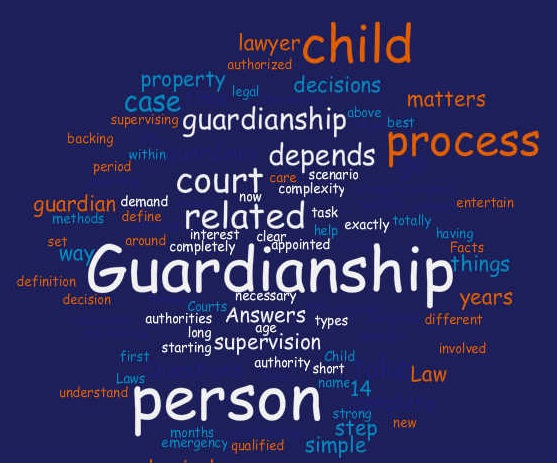Listen to the audio version of this post
It’s Terminology Tuesday, so today we are tackling the word Guardianship, which is a legal term used to protect minors and individuals with diminished capacity. Understanding the derivation of the word can help explain its legal implementation, both when used alone and when used in the phrase guardian ad litem, which we’ll talk about a little later in this blogpost.
The word ‘guard’ comes from an Old French word for ‘keeper, or custodian’, and the use of the word ‘guardian’ as a legal term traces back to the 1510s.
When using the word guardian during court involved litigation, we extend the language so that a person in that role is called a guardian ad litem (meaning ‘with/for litigation’), commonly referred to as a GAL.
Although a GAL signifies a person whose role in the process of a legal dispute is to ensure the safety of a person or persons in need of protection, the prospect of having one appointed is often met with trepidation. Divorcing parents often feel as though their parenting skills are being tested, and truthfully in many ways parents are put under a microscope for a snapshot in time as the film Marriage Story aptly portrays when, the father wryly asks the court appointed investigator (GAL) whether she ever observes married people. (Check out our blog-series on Marriage Story for more on relationship-dynamics.)
However, in divorce cases where the ongoing care and protection of children is contested between parents, the role of guardian ad litem is oftentimes crucial. When parentsare emotionally invested in their children and think their spouse is incapable or less capable of providing their children with appropriate care, the court may appoint a guardian ad litem to serve as an impartial party to determine what is in their children’s best interests (a topic we discussed previously in a blogpost on custody, which we have linked here if you’re interested in reading more on that issue.) If the Court appoints a guardian or a GAL, that individual may be a lawyer, a psychologist, or a related mental health professional (whomever the Judge deems appropriate in light of the circumstances), that person can and often does play a pivotal role in the lives of a restructuring family as they write evaluations upon which the Court may give great weight, deeply impacting the lives of those concerned.
Nota bene: Look for our soon-to-be-published companion to this blogpost, which will explore our vantage point on the related concept of conservatorship and how it played out in Britney Spears’ epic legal battle, a modern cautionary tale about the importance of creating financial and estate planning mechanisms to care for both ourselves and those we love.

